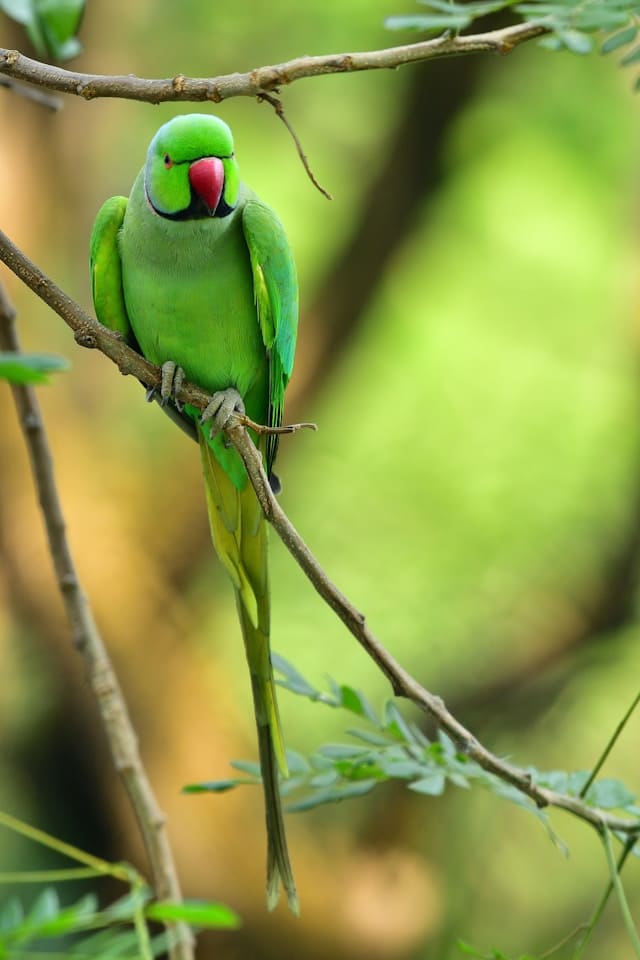What’s the Best Method to Reduce Feather Plucking in Parrots?

Feather plucking in parrots is a matter of great concern for pet owners. It not only detracts from the bird’s natural beauty but can also signal underlying problems. Whether due to boredom, stress, or poor nutrition, it’s a behavior that needs attention. Read on to discover the best methods to reduce feather plucking in parrots and ensure their overall health and happiness.
Understanding the Causes of Feather Plucking
Before you can effectively prevent or reduce feather plucking in parrots, it’s crucial to understand the possible causes. Feather plucking, or feather picking, is not a normal behavior in parrots. It’s a sign of distress, discomfort, or disease.
Avez-vous vu cela : What Are the Best Natural Remedies for an Anxious Dog?
The main factors leading to this behavior can be broadly classified into two categories: psychological and physical. Psychological causes include boredom, anxiety, and depression. A lonely parrot without proper stimulation will start picking its feathers to cope with the dullness.
On the other hand, physical causes range from skin conditions to nutritional deficiencies, like lack of calcium in diet. Other medical conditions such as liver disease, parasites, and bacterial or fungal infections can also lead to feather plucking.
A lire aussi : What Are the Best Strategies for Calming a Hyperactive Dog Without Medication?
Understanding these causes allows you to take appropriate measures to alleviate the bird’s distress and create a healthier environment for them.
The Role of Diet in Feather Plucking
Parrots need a balanced diet to stay happy and healthy. Just like in humans, what they eat directly affects their skin and feathers. In particular, vitamin A and calcium are both critical for feather and skin health.
A deficiency in these nutrients can lead to dull, brittle feathers and itchy skin conditions, which may prompt the bird to start plucking. Apart from this, a diet lacking in essential fatty acids can also cause dry, itchy skin, leading to feather picking.
To ensure your parrot has a balanced diet, incorporate a variety of foods such as fruits, vegetables, seeds, and pellets into their meals. Consult a vet for specific dietary recommendations based on your bird’s age, size, and health condition.
Maintaining a Suitable Environment for Parrots
The environment in which your parrot lives plays a significant role in their overall well-being and behavior. An inappropriate or stressful environment can lead to anxiety and feather plucking.
Ensure the cage is large enough for the parrot to move freely and spread its wings. Include a variety of toys to keep them entertained and mentally stimulated. Keep the cage clean to prevent potential bacterial or fungal infections.
Lighting is another crucial aspect. Parrots need regular exposure to natural sunlight or full-spectrum light for their health. Lack of proper light can lead to depression, resulting in self-destructive behaviors like feather plucking.
Addressing the Psychological Needs of Parrots
Parrots are intelligent birds, craving social interaction and mental stimulation. Ignoring these needs can lead to behavioral problems, including feather plucking.
Spend quality time with your parrots, engaging them in activities they enjoy. Training sessions, interactive toys, puzzles, and foraging games can help keep their minds sharp.
It’s also important to respect their need for rest. Parrots need about 10 to 12 hours of sleep each night. Disruptions in their sleep cycle can lead to stress, leading to feather plucking.
Seeking Veterinary Care for Feather Plucking
Despite your best efforts, if your parrot continues to pluck its feathers, it’s time to seek professional help. A vet can perform tests to rule out underlying medical conditions that might be causing this behavior.
They may prescribe medication or recommend dietary changes. In some cases, they may advise the use of a collar to prevent the bird from reaching its feathers.
In conclusion, feather plucking in parrots is not just about aesthetics. It’s a sign of deeper issues that need to be addressed. By understanding the causes, maintaining a healthy diet and environment, addressing their psychological needs, and seeking professional help when needed, you can significantly reduce feather plucking in your pet parrots.
The Impact of Feather Plucking on Different Parrot Species
Feather plucking doesn’t discriminate – it affects all types of parrots, from African Greys to exotic pets like the guinea pig parrot. However, the degree of feather destructive behavior may vary depending on the species.
For instance, the African Grey parrot, renowned for its intelligence and sociability, can be particularly prone to stress-induced feather plucking. In contrast, the more docile guinea pig parrot might start plucking feathers due to a lack of physical stimulation or a calcium-deficient diet.
Captive birds, in general, are more likely to develop feather damaging behaviors, given their restricted environment and the potential absence of natural stimuli. The potent brew of limited activity and high intelligence often leads these birds to develop habits like feather picking as a coping mechanism.
In some cases, the plucking might be so severe that it results in feather disease. This is when the bird has plucked so much that the feather follicles are damaged, leading to poor feather regrowth or even permanent baldness.
To mitigate this, an avian veterinarian should be consulted. They can provide solutions tailored to your bird’s species, age, and overall condition. Remember, while common, feather plucking is not a normal behavior in parrots and should be addressed promptly.
Conclusion: The Multifaceted Approach to Reducing Feather Plucking in Parrots
Feather plucking in parrots is a complex issue that requires a multifaceted approach. It’s not enough to address just the physical or psychological reasons; feather plucking requires a comprehensive understanding and intervention plan.
Firstly, diet plays an integral role. Ensure that your parrot receives all the necessary nutrients for healthy feathers and skin. This includes calcium, vitamin A, and essential fatty acids.
Equally important is the bird’s environment. As highly intelligent and social creatures, parrots need an environment that caters to these needs. This translates to a spacious cage, plenty of toys for mental stimulation, and ample exposure to natural or full-spectrum light.
Moreover, don’t neglect the psychological well-being of your pet birds. Interaction, play, and adequate rest are crucial to staving off stress, anxiety, and ultimately, feather plucking.
If your attempts to curb feather plucking prove unsuccessful, don’t hesitate to consult a professional. An avian veterinarian can help identify underlying health issues or recommend advanced treatments.
In the end, remember this: the goal is not merely to stop your parrot from plucking its feathers. The aim is to ensure they are happy, healthy, and leading a fulfilling life in captivity. That’s the real key to reducing feather plucking in parrots.
